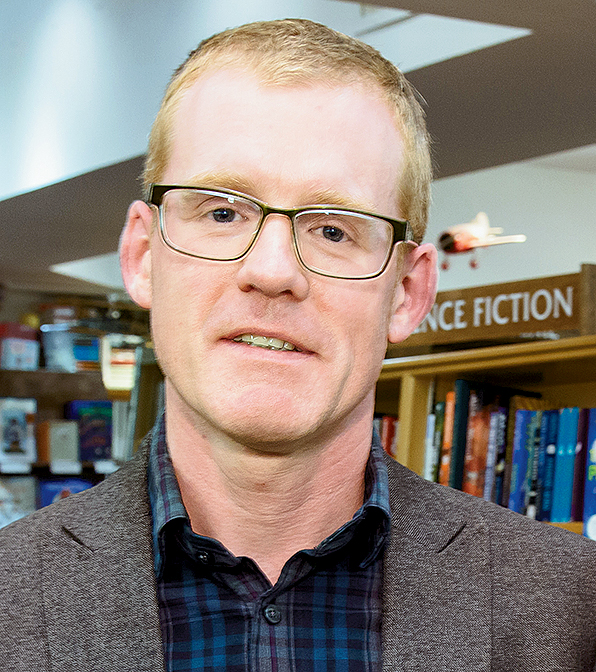POETS & WRITERS IS MORE than a magazine. We are a nonprofit organization dedicated to serving creative writers. We pay fees to writers giving readings and leading workshops, provide information and advice to authors, and help them connect with one another and with audiences. We also sponsor a number of awards and prizes.
Your Journey Is Just Beginning
You are a poet—or you think you are. Perhaps you have never been sure. After all, you don’t have the four or five books to your name that you thought you’d have by now. A couple of competition wins, an award or two, yes, but no book. It seems so complicated, so difficult, this business of getting published. You live in a small town, in a rural state, far away from the publishing centers of America; the editors and poets amassed there seem so far above you.
But you try. You enter contests, send your work to magazines; they all say no. In April you miss a call—a New York City number—probably a scam. There is a voice mail from “Bonnie.” It’s not a scam. Bonnie Rose Marcus is from Poets & Writers, and you have won the Maureen Egen Writers Exchange Award for poetry—you are going to Manhattan on an all-expenses paid trip to meet with writers, agents, editors, and publishers.
Six months later you arrive. The buildings are enormous, the streets teeming. You meet Bonnie, bright and beaming, and go out for dinner with Joan Dempsey, the writer who won the award for fiction, who is quickly becoming a good friend. Your nerves are tingling; you almost dread the thought of tomorrow’s meetings. What will you ask them—these poets who have made it, who have books and books; these editors of famous magazines—what will you ask them that won’t sound ridiculous? Will they look down at you, expecting you to know all the poets and trends that you don’t?
Morning comes. Bonnie guides you; the streets seem less alien. The first meeting is with poet Patricia Carlin, coeditor of Barrow Street and associate professor at the New School. You meet at a coffee shop, get a quiet table in the corner. You’re so nervous you can’t remember what you said. It doesn’t matter. She’s gracious, interested, friendly. You talk about assembling collections, the benefits and downsides of small presses and regional presses, places to network. She asks if one of your winning poems is available for her magazine, gives you her card.
Now you feel better. This is going to be okay—maybe even fun. In the next meetings, with agents and other fiction folk, Joan is in the spotlight, so you relax. From the sidelines, you see that all these people—big, important New York people—are just people: interested in writers, passionate about literature, engaged with you. At dinner, editors from A Public Space, Four Way Books, and Hanging Loose Press discuss magazine life, small press life, and poetry. You see that editors simply want their work to be thoughtfully read, the same as you do. Submissions, you realize, don’t have to be a battle but can be a communication—maybe even an offering. Someone will like your work if you take the time to learn what they like first.
The days zoom by. Breakfast with a writer, coffee with an agent, lunch with another writer, tea with a publisher. Bonnie shepherds you with care and endless good humor. You grow comfortable with the routine, with the city, with the important New York people. You meet Jonathan Galassi of FSG and feel entirely at ease. You love hearing gossip about the Iowa Writers’ Workshop, what Jorie Graham said to whom. In the first five minutes of tea, poet Kate Angus, the founding editor of Augury Books, tells you eight small presses she thinks would appreciate your aesthetic. With Joan, you give your first reading in a big city, and the audience seems to like it. Rob Spillman of Tin House gives you this gold-plated advice: A busy editor must be persuaded based on the title plus the first line of your poem. David Lehman scrawls helpful edits on your manuscript. The tour of the New Yorker offices is unforgettable.
Suddenly it’s over. You’re going home, to your small town, your green and quiet state. Nothing has changed there—but when you sit in your placid town library, New York City feels close. You start working on your manuscript. You are a poet. You are ready.
This essay appeared, in slightly different form, on our Readings & Workshops Blog on January 8, 2018. Learn more about the Maureen Egen Writers Exchange Award at pw.org/wex.







